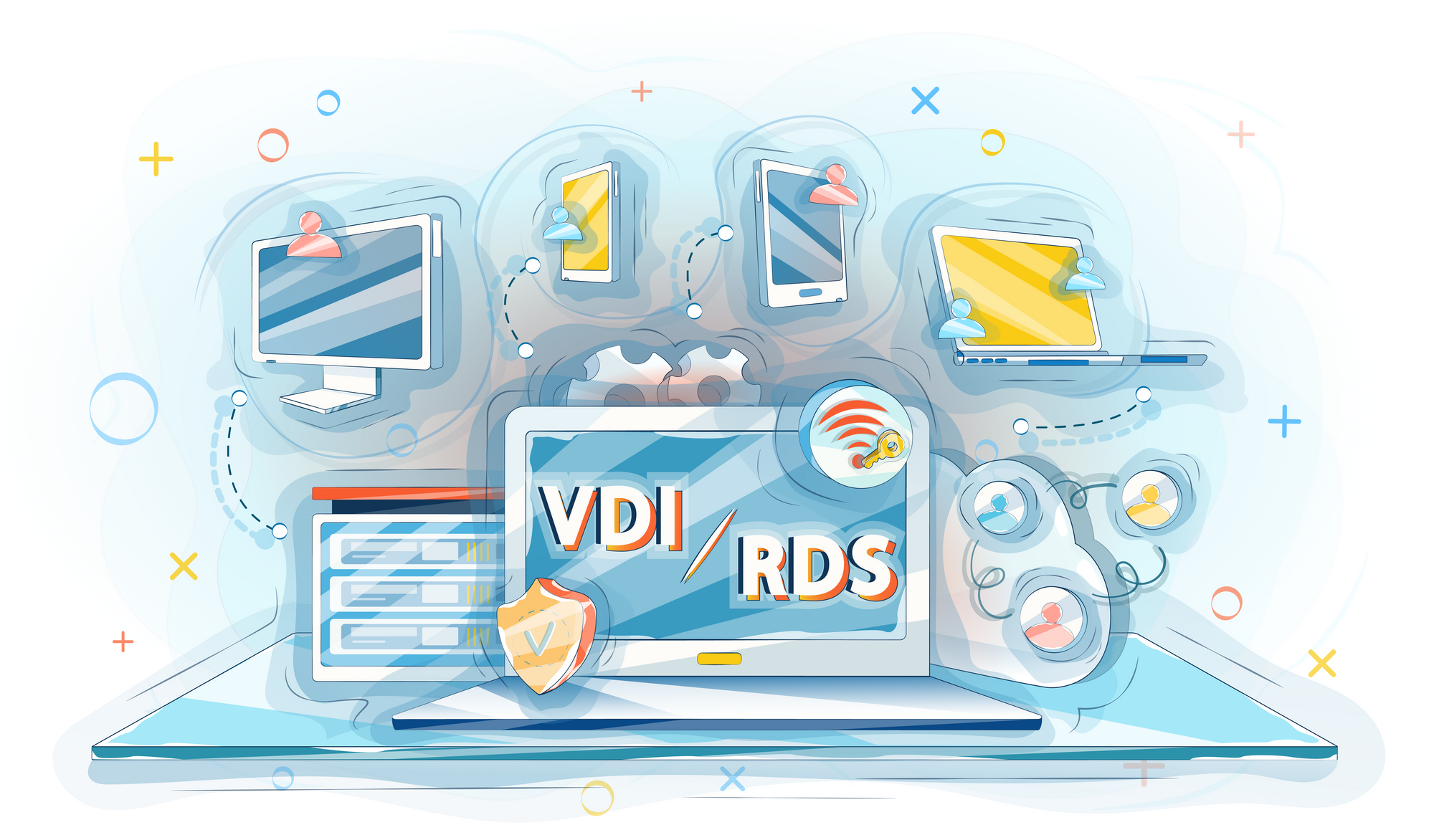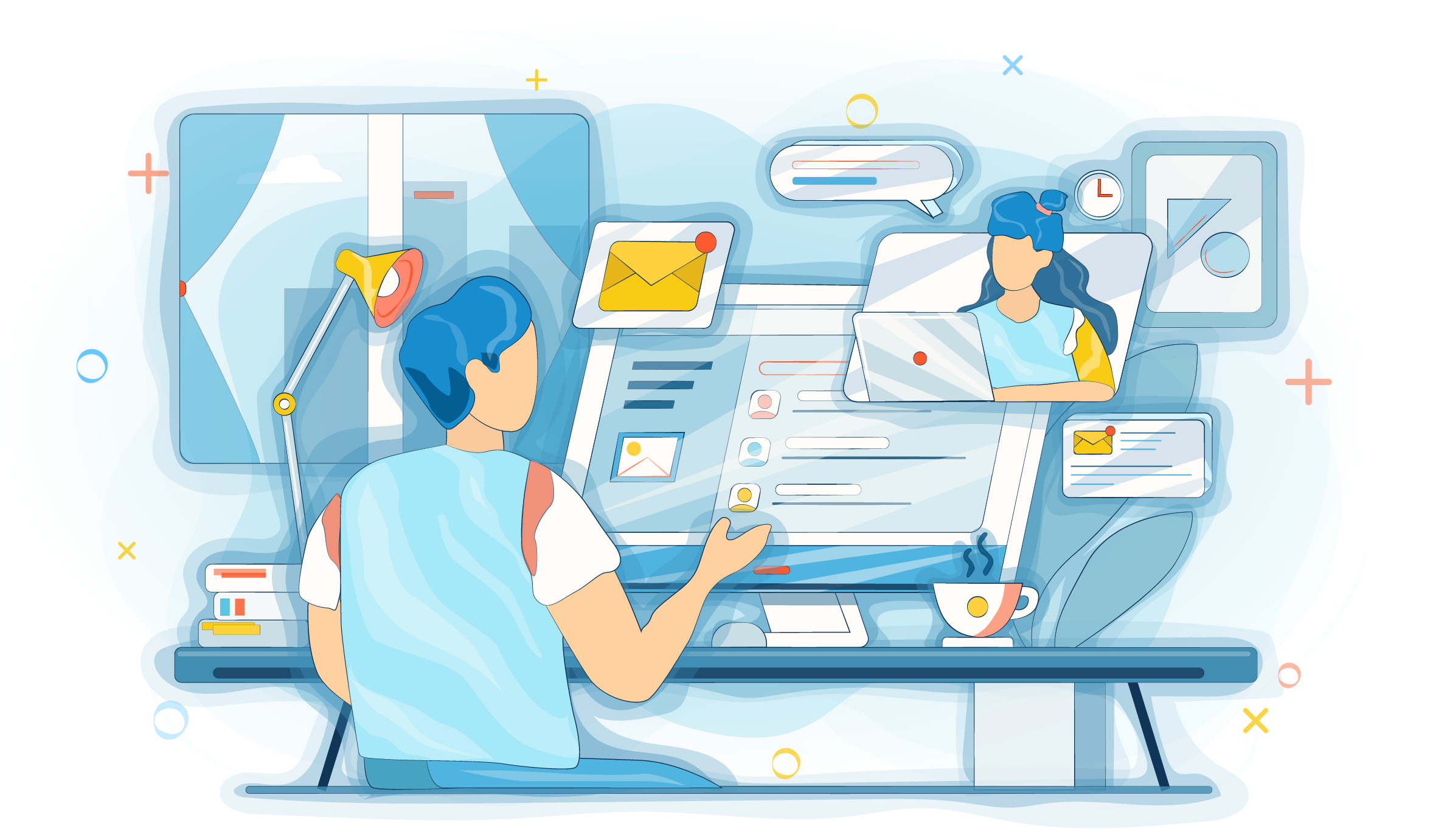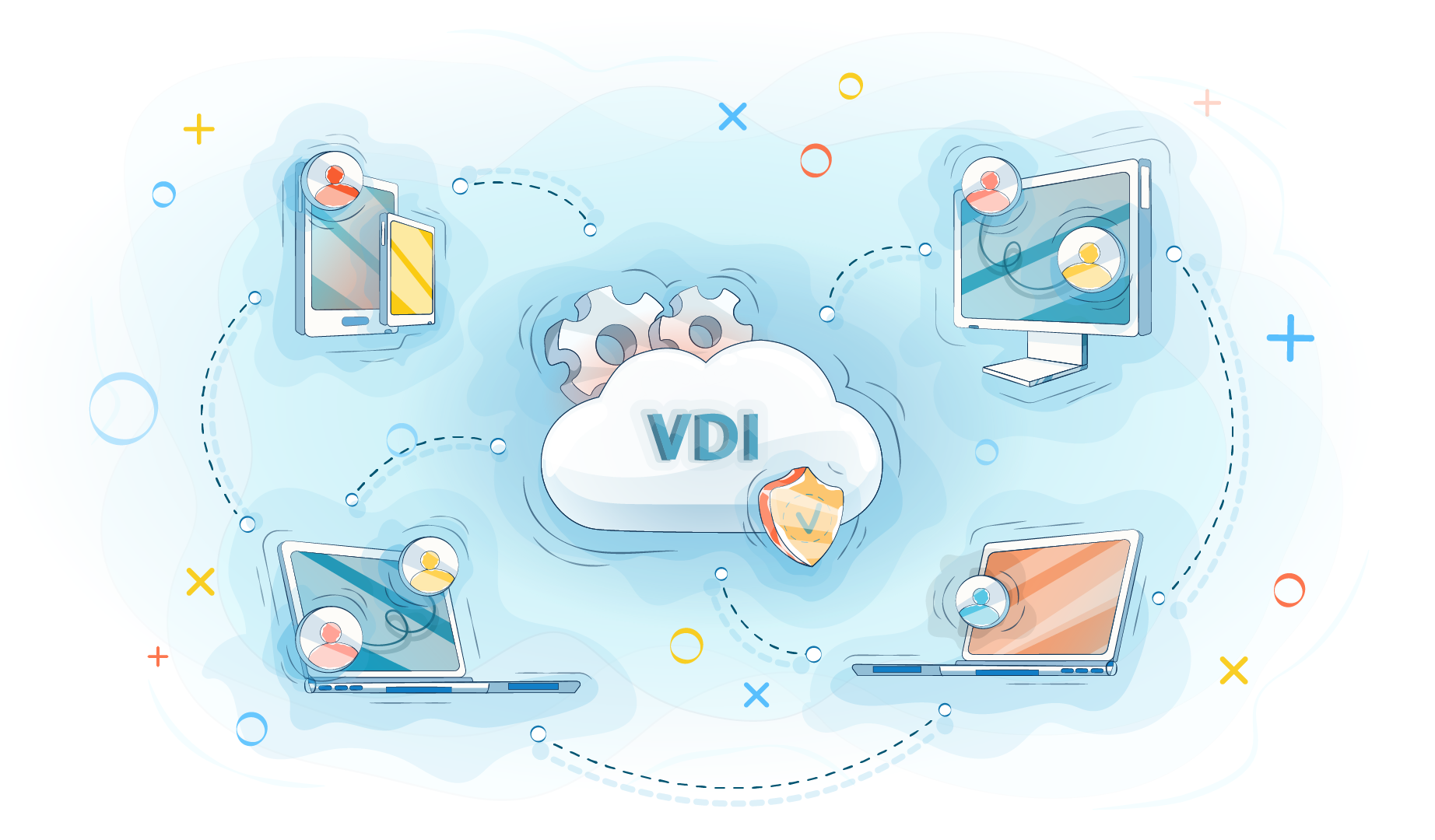Remote connection to the workplace is a profitable and convenient way of working for many companies. It is even necessary in some cases, as we all have understood facing quarantine 2020. So, there are several technologies that make it possible to use virtual workplaces. It is important in the extreme to select the most optimal variant to make all the processes efficient, to provide convenient working, and for the company not to suffer losses. So, let's consider VDI and RDS, as these two are considered to be the most common technologies. Non-technical users tend to confuse them very often. Besides, they often consider these technologies almost the same. In fact, they are different, so one can select the best option for a business having a good understanding of these two technologies' features.
What is VDI?
VDI is a Virtual Desktop Infrastructure. This is a virtualization technology that makes their isolation maximal. Desktop images are run on virtual machines (VMs) and end-users can access them over the network.
How does the VDI technology work:
- Isolated virtualized environments are created on a remote physical or virtual server. In other words, a division into multiple desktops takes place.
- A user gets remote access to the desktop using the RDP protocol. To do this, one only needs to have a personal device (mobile gadget or PC) and access to the Internet.
- Each user will have its own dedicated virtual machine. Any worker will be able to install or uninstall applications with full or partial administrative rights.
Here are the key benefits of VDI desktop virtualization:
- mobility and the ability to work remotely (there is no need to install working software on a personal PC, tablet or any other device);
- low technical characteristics and device performance requirements (all the commands are processed and executed on a centralized server, so maintenance costs are reduced)
- isolation of virtual environments (work processes of individual users are maximally separated);
- data security (VDI is particularly useful for those businesses dealing with critically important and sensitive data).
There are a more detailed overview and benefits of the technology presented in this article
What is RDS?
RDS is a Remote Desktop Services. This Microsoft product makes it possible for users to access a computer or a virtual machine remotely. Such names, as "terminal access" or "terminal server" are also used.
RDS provides possibilities for deploying applications or a full-fledged desktop for end-users without installing any software on their devices. A server is responsible for all calculations.
Here is the description of RDS technology:
- All the necessary software is installed on centralized server hardware.
- Users connect to the server using their devices through the RDP protocol and get access to the desktop.
- The desktop interface is displayed on the connected users' devices, so all processes related to command processing occur on the server.
Remote desktop service has many advantages, so they are the following:
- it ensures the security and confidentiality of business processes, so no data will go beyond the protected network;
- it eliminates the need for managing devices and applications of end-users;
- it makes device maintenance lower, as well as installation, and software upgrade.
Thus, the tasks of VDI and RDS are almost the same, as both provide convenient and efficient employees' work on remote desktops. Nevertheless, looking a little bit deeper, we understand that they have many differences. So, it's better to choose the best option for your business after having a look at the differences between VDI and RDS.
What are the differences between VDI and RDS technologies?
VDI is often referred to as the RDS analog. They are quite similar, as all computational processes occur on the server device, and connected users just send commands using their devices. However, the difference between them is significant:
- VDIs are virtual desktops that are implemented on separate virtual machines;
- RDS is a virtual desktop (account) organization technology within one operating system on one virtual or dedicated server.
VDI desktop virtualization is needed if you want to isolate separate users maximally and if there are high confidentiality requirements. As for RDS, it is a good choice when employees work in a team.
What's better: VDI or RDS? Choose the best option for your business
Each business is unique, so depending on the processes there are many situations, where the use of VDI or RDS may be advantageous. Let's figure out what technology is better to be used in companies from different industries.
In what cases it's better to choose VDI?
When it comes to corporations with multiple branches, and there are some difficulties with the administration, the VDI technology will make the work more efficient. So, what companies should be interested in this technology?
- Companies with a large number of remote employees. The advantage of remote desktop infrastructure was especially appreciated during the Covid-19 pandemic, as many enterprises were forced to switch to the home office. The introduction of VDI made it possible for workers to continue working in the usual format, which facilitated the transition to remote mode.
- Medical facilities. Understandably, work in hospitals and clinics requires confidentiality and data security. Deploying a VDI environment provides healthcare professionals with access to records related to their patients. Also, doctors can access their workplaces using their mobile devices, such as tablets, which allows them to move around the institution and monitor the workflow.
- Engineering and design fields. In these industries, resource-intensive applications are often used. Due to the technology introduction, workers can perform any type of work using virtual desktops. There is no need for a company to buy high-performance devices, which reduces costs significantly.
- Call centers. Similarly to medical institutions, such companies face a need for operating multiple clients' data and store it in a database. In addition, in call centers, there are usually several shifts, so they use the same desks. VDI implementation is enough to optimize processes. Workers will just need to load the desktop they need and log off at the end of the shift.
Generally, VDI is an actual method of organizing work on medium and large enterprises. For small businesses, it may be unprofitable to use remote desktop infrastructure.
In what cases it's better to choose RDS?
RDS technology is a great option for small businesses, for example, small stores or startups. When there is a small staff in a company, hardware maintenance for each of them becomes costly. At the same time, it is not yet profitable for VDI to be implemented, as the expenses will significantly exceed the profit of the enterprise. In such cases, RDS is like a "middle ground", as it will help not to spend too much unnecessarily and make work more efficient. This technology also ensures confidentiality, which is also important for small businesses.
In large companies, remote desktop service is not the best solution. Organizations that operate large amounts of data and monitor privacy strictly, tend to favor VDI.
VDI and RDS from King Servers
If you have decided to implement new business solutions and are looking for a chance to use desktop virtualization technology, we'll gladly help you with this! King Servers offers different rates
for customers with different needs, providing the following:
- Operational technical support 24/7;
- 24-hour server monitoring;
- 100% uptime.
Besides, we also have our own network of servers in the data centers of the Russian Federation, the USA, and the Netherlands. Are you not sure about you wish to cooperate with us yet? Just check out our clients’ reviews. Together we will take your business to a new level!
























